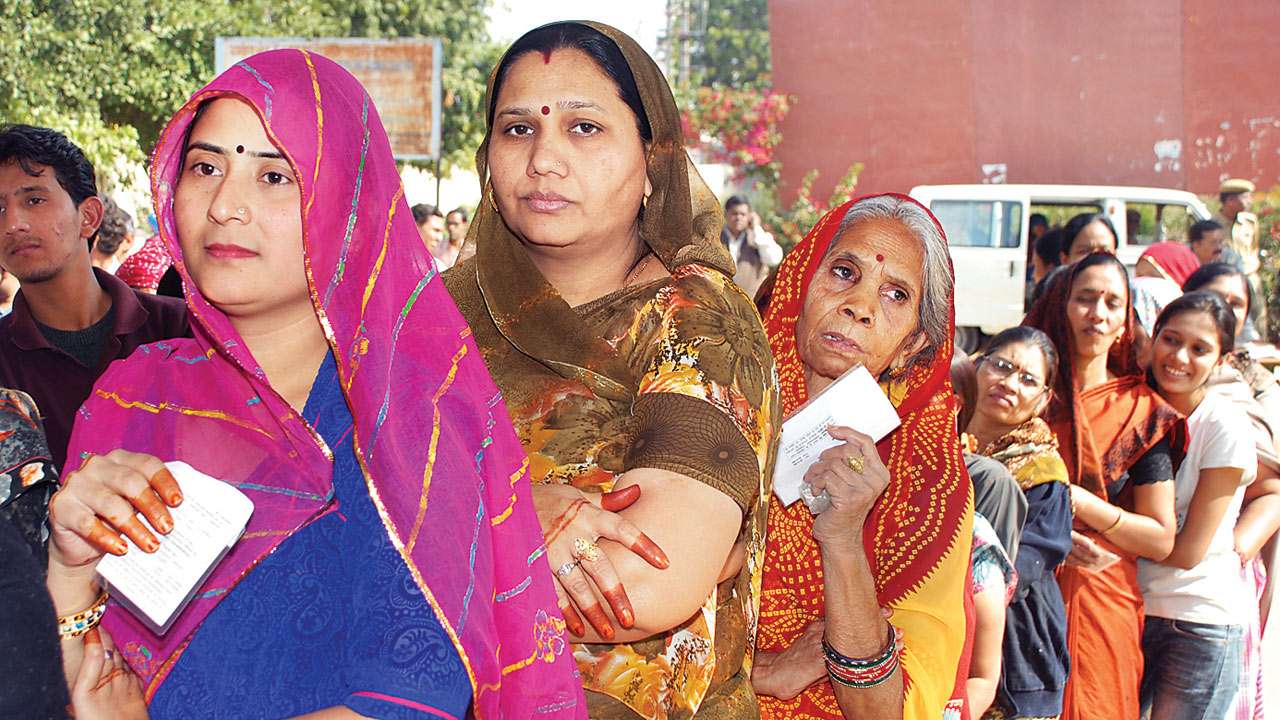
The reluctance to concede ground to allies and its choice of candidates are sufficient indication that Congress is experimenting with the 2019 general elections to revive its organisational structure, rather than halt BJP’s march.
This is particularly pronounced in politically crucial UP.
Political pundits want to know why the Congress has changed its strategy from consolidating secular and democratic forces, to going it alone in key states.
Even its earlier plans to prevent consolidation of Hindu votes in favour of Prime Minister Narendra Modi by adopting soft Hindutva, has been ignored.
Unlike Sonia Gandhi’s strategy that led to the defeat of Atal Bihari Vajpayee-led NDA government in 2004, Rahul Gandhi has chosen to rebuild the mortgaged and depleted Congress `haveli’, instead of dealing with real situation on ground.
At a time, when the grand old party faces a real political threat, it is surprising that it was still not ready to concede ground to like-minded allies.
Even in Jammu and Kashmir, where the party has no base, it has refused to part with two seats in the Kashmir Valley to ally National Conference or the PDP. Both these parties left two seats in the Jammu region to the Congress, making the contest a cliff hanger for the BJP.
Instead, the Congress has fielded candidates from the north and south Kashmir seats.
In stitching alliances, the NDA has taken the lead, cobbling together 40 parties. It has succeeded in bringing in estranged partners like Shiv Sena and Asom Gana Parishad, who were critical of Modi over the years.
Alliances need sacrifices and BJP has shown the way by sacrificing its ministers and sitting MPs to concede seats to its allies.
In the words of analyst Anurag Modi, the common village voter is hardly influenced by TV debates. His voice may not be heard by those sitting at the highest pedestals, but his time comes when India votes.
Congress’s main challenge is to avoid the fragmentation of this vote. This can only be possible if Rahul Gandhi ignores sycophants around him and toes his mother’s tried and tested line.
Rahul Gandhi’s experiment fits in with the resolution adopted at the September 1998 Congress session at the scenic Pachmarhi hills in Madhya Pradesh.
The party decided to re-claim its lost ground by going to the polls alone, with the exception of few states like Tamil Nadu.
Leaders, more sycophantic than visionary, told Sonia Gandhi in 1998 that the NDA will disappear and meet a fate similar to the Janata Party in 1979, which had ousted the Congress under powerful Indira Gandhi for just two years.
It would appear that Rahul Gandhi has reached similar conclusions about the secular and regional parties thriving at the expense of the Congress.
A senior Congress leader bluntly confided to this writer that while BJP is a political rival, regional secular parties were enemies. “They have eaten into our vote base, making us non-existent in West Bengal, Bihar, UP and Tamil Nadu,”he said.
Sonia learned that going it alone will harm the party. In the 1999 Lok Sabha elections, fighting solo under Sonia Gandhi, the Congress lost more ground, depleting its numbers further.
Thereafter, the party lost state after state in the assembly elections. Following the 2002 Gujarat riots, CPI(M) general secretary Harkishan Singh Surjeet approached Sonia and asked her to review the Pachmarhi resolution.
In a brainstorming session at Shimla in July 2003, the party adopted an open-minded approach on pre-poll and post-poll alliances, which, it said will be implemented at the national level.
Soon after the Karnataka assembly elections last year in May, a revival of the 2004 Congress spirit to lead liberal and democratic forces, resurfaced.
It was, in fact, Bahujan Samaj Party (BSP) supremo Mayawati who immediately dialled Sonia after the Karnataka election results indicated a fractured mandate.
She reportedly brought the Congress and Janata Dal (S) chief, HD Devegowda, together to keep the BJP at bay in the southern state. She called up Devegowda and convinced him to take Congress support.
Naturally, questions are being asked as to why Rahul didn’t restructure or rebuild the organisation in the last five years.
After its worst defeat in 2014, it was a godsend scenario for the current Congress president to initiate reforms and delegate powers to district committees to choose candidates and be accountable. He had ample time to get the organisation come out of the grip of family loyalists.
The result is that Congress remains in tatters, as Rahul has done nothing except make noises about “structural reforms”.
He first told workers in UP that the party would not be revived in the state unless it contests on its own and then justified an alliance with the Samajwadi Party in the last assembly election.
Even though Congress continues to be a central column for any secular alliance, there is need to have clarity on alliances.
Many opposition leaders asked the Congress to emulate a Bihar-type grand alliance at the national level by sacrificing ego. Tactically, they asked the party to focus on west India, including Madhya Pradesh and Chhattisgarh and leave eastern India, basically UP and Bihar, to regional parties to limit seats of the BJP-led NDA.
But in the words of Rasheed Kidwai, a veteran writer on Congress affairs, the party’s 2019 story is bad and muddled.
In addition to Rahul Gandhi’s inexperience, the grand old party lacks in self-belief and its ability to communicate and connect, even though it has produced a really sound manifesto. But then Indian elections are not contested on manifestos alone.
The author is Chief of National Bureau, DNA